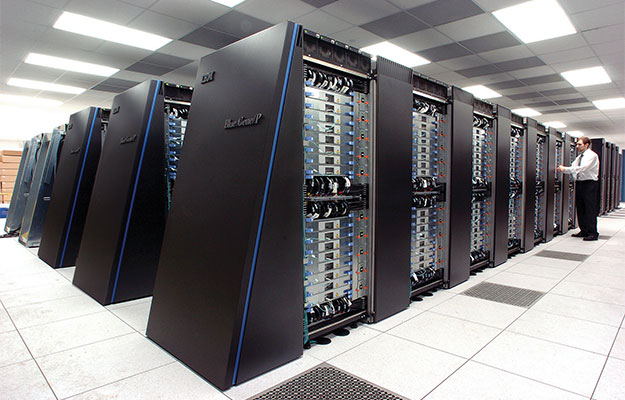Japan Looks To Leapfrog China With 130 Petaflop Supercomputer
The supercomputer race has only just begun. Japan is currently planning to build the world’s fastest supercomputer. The machine, nicknamed AI Bridging Cloud Infrastructure (ABCI), would ideally be able to process 130 quadrillion calculations per second or 130 petaflops.
Japanese Prime Minister Shinzo Abe has called for scientists, companies, and bureaucrats to work together in order to dominate robotics, renewable energy, and other up and coming industries. The Ministry of Economy, Trade and Industry will spend 19.5 billion yen ($173 million) on the supercomputer project and should commence in early 2017.

Japan is particularly interested in artificial intelligence such as “deep learning”, with one of the supercomputer’s goals would being to help tap medical records to develop new services and applications. The supercomputer could be useful in improving driver-less cars by analyzing traffic and refining factory automation as well.
China’s supercomputer, Sunway Taihulight, is currently only capable of 93 petaflops and is used for weather forecasting, pharmaceutical research, industrial design, etc.
The supercomputer will also be serviceable for Japan’s political and economic agenda. Japan was once the top dog in technology, however, it lost its spot due to increasing competition from South Korea and China. The Japanese government hopes that its supercomputer would skyrocket it to the top of the tech industry once more.

Bidding for the project is currently underway and will end December 8th, 2016. Fujitsu Limited, the builder of the fastest Japanese supercomputer to date, has declined to state whether it will be placing a bid. The supercomputer will be made available for a fee to Japan's corporations. This will also prevent Japanese corporations from outsourcing to companies such as Google and Microsoft who have been feverishly working on their own supercomputers.
Japanese Prime Minister Shinzo Abe has called for scientists, companies, and bureaucrats to work together in order to dominate robotics, renewable energy, and other up and coming industries. The Ministry of Economy, Trade and Industry will spend 19.5 billion yen ($173 million) on the supercomputer project and should commence in early 2017.

Japan is particularly interested in artificial intelligence such as “deep learning”, with one of the supercomputer’s goals would being to help tap medical records to develop new services and applications. The supercomputer could be useful in improving driver-less cars by analyzing traffic and refining factory automation as well.
China’s supercomputer, Sunway Taihulight, is currently only capable of 93 petaflops and is used for weather forecasting, pharmaceutical research, industrial design, etc.
The supercomputer will also be serviceable for Japan’s political and economic agenda. Japan was once the top dog in technology, however, it lost its spot due to increasing competition from South Korea and China. The Japanese government hopes that its supercomputer would skyrocket it to the top of the tech industry once more.

Bidding for the project is currently underway and will end December 8th, 2016. Fujitsu Limited, the builder of the fastest Japanese supercomputer to date, has declined to state whether it will be placing a bid. The supercomputer will be made available for a fee to Japan's corporations. This will also prevent Japanese corporations from outsourcing to companies such as Google and Microsoft who have been feverishly working on their own supercomputers.

